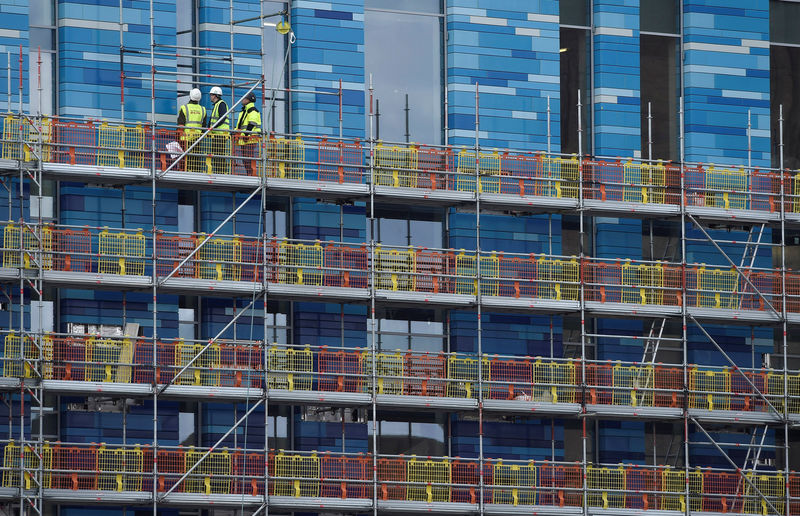By William Schomberg
LONDON (Reuters) - Britain's construction industry suffered its worst contraction in seven years in June as concern grew about a referendum on European Union membership, according to a survey that was mostly conducted before Britain voted on June 23 to quit the EU.
Financial data company Markit said on Monday its construction Purchasing Managers' Index plunged to 46.0 in June from 51.2 in May, its lowest level since June 2009, in what could be a sign of worse to come.
It was the first time since April 2013 the index had fallen below the 50 level that separates contraction from expansion, and sterling
"This is an absolutely dire survey that fuels serious concern over the construction sector ... (and) can only intensify concern as to just how much the construction sector will be hampered by the Brexit vote," Howard Archer, chief UK economist at IHS Global Insight said.
Some investors are already pulling out of commercial property deals in London, though the picture is mixed as the sharp fall in sterling makes the city cheaper for foreigners.
But the construction industry is likely to face cost pressures from Brexit, as many materials are imported from elsewhere in the EU. Many construction workers also come from Europe and may find Britain a harder place to work in future.
"The extent and speed of the downturn in the face of political and economic uncertainty is a clear warning flag for the wider post-Brexit economic outlook," said Tim Moore, a senior economist at Markit.
"The latest figures raise the likelihood that the Bank of England will inject additional stimulus this summer in an attempt to dampen the short-term impact of Brexit uncertainty on the real economy."
Bank of England Governor Mark Carney said last week that he thought the central bank would have to provide more stimulus for the economy over the summer as it reels from the shock of the "Leave" vote.
House-building activity was hardest hit in June, closely followed by commercial work. Civil engineering was stable.
Incoming work fell at its fastest rate since late 2012. Markit said 80 percent of the survey responses were received before June 24, when it was announced that British voters had decided to leave the EU.
Construction makes up 6 percent of Britain's economy, though it accounts for a lot of volatility in official gross domestic product data.

A PMI survey for Britain's manufacturing in June, published on Friday, showed factory output rose last month, while the closely watched services PMI due on Tuesday is forecast to show a slowdown.